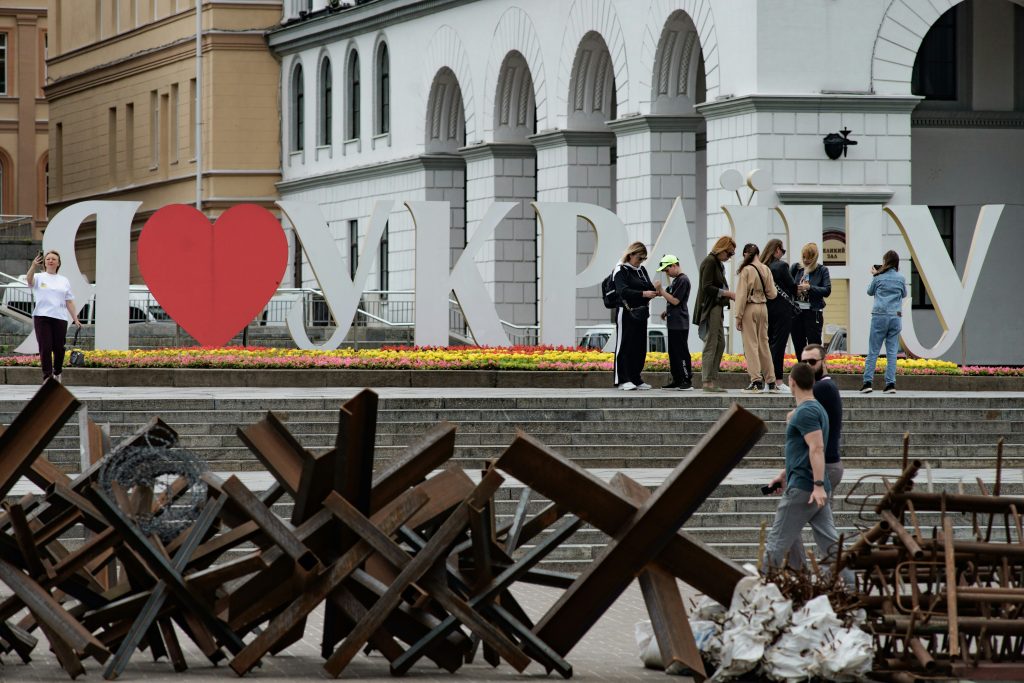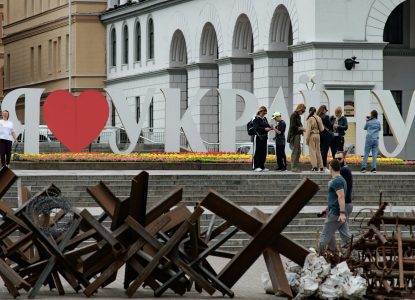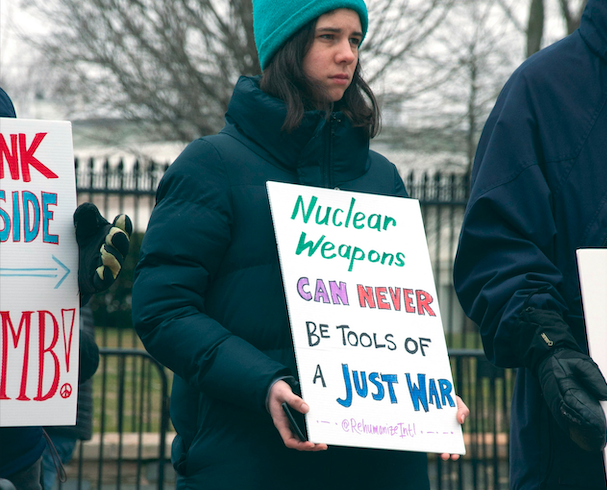By JoAnne Wadsworth, Communications Consultant, G20 Interfaith Forum.
On February 13, 2025, the G20 Interfaith Forum, the Group of 78, and the International Academy for Multicultural Cooperation hosted an expert discussion examining how the nuclear threat in the Ukraine-Russia conflict could be minimized or eliminated, and exploring lessons learned from the history of diplomacy and nuclear negotiations.
Speakers included Paul Meyer, Fellow of International Security and Adjunct Professor of International Studies at Simon Fraser University, Founding Fellow of the Outer Space Institute, and Director of the Canadian Pugwash Group; Walter Dorn, Professor of Defence Studies at the Royal Military College of Canada and Canadian Forces College, and Director of the Canadian Pugwash Group; and moderator Peggy Mason, President of the Rideau Institute on International Affairs, Board Member of Group of 78, and Vice-Chair of the Canadian Pugwash Group.
– – –
Peggy Mason opened the webinar by addressing the timeliness of the discussion, particularly in light of recent developments. She noted that while diplomacy had not been a major focus of international engagement on the Ukraine conflict since Russia’s full-scale invasion, the situation had suddenly shifted with news of direct talks between the US and Russia. These developments added new urgency to the discussion of how diplomatic efforts might help minimize nuclear risks in the region.
“The only positive glimmer in the Ukraine war nightmare has been the stark realization by the U.S. and NATO that a direct military engagement with Russia carries an unacceptable risk of nuclear war. But the only way to remove all risk of escalation is to end the war.”
Paul Meyer:
Meyer opened the discussion by examining the concept of “ripeness” in conflict resolution, suggesting that conflicts can reach a point where they are ripe for resolution when both belligerents find themselves in a mutually painful stalemate. He outlined how Russia’s aggression against Ukraine has delivered three severe blows to the international order: violating the UN Charter’s core principles, abusing its UN Security Council privileges, and engaging in dangerous nuclear rhetoric.

Meyer emphasized the perilous state of nuclear arms control, noting the impending expiration of existing agreements. With the expiry of the New START agreement approaching, he warned there would soon be no legally binding restraints on the nuclear forces of Russia and the United States.
Looking toward potential diplomatic solutions, Meyer stressed the importance of finding the right formula for military presence and security guarantees in any eventual settlement. He noted that Ukraine and its supporters cannot afford to be excluded from negotiations, suggesting that a period of proximity talks might be the most practical approach at this stage.
“The disruption to the international order caused by Russia’s aggression against Ukraine is profound… Russia has delivered a severe and enduring blow to the rules based international order.”
Walter Dorn:
Dorn began his presentation with a stark quantitative analysis of nuclear threats, comparing historical nuclear tests to modern arsenals. He traced the evolution of nuclear doctrine through the Cold War to present day, highlighting Putin’s increasingly aggressive nuclear rhetoric and policy changes since the start of the Ukraine war.
He detailed Russia’s concerning moves regarding nuclear weapons, including their deployment to Belarus and lowered threshold for use. Of particular concern was Putin’s expansion of nuclear weapons use conditions to include retaliation against conventional attacks that threaten Russia’s sovereignty or territorial integrity.
Dorn emphasized that while Putin may be bluffing with his nuclear threats, the risk of miscalculation or accidental use in times of high tension cannot be ignored. He pointed to historical examples like the Cuban Missile Crisis to illustrate how nuclear powers learned to avoid direct conflict that could escalate to nuclear war.
“Nuclear war cannot be won and must not be fought… when you’re dealing with someone like Putin, an autocrat who uses power and disregards human security, you have to take these warnings and these indicators with great heed.”
Q&A Session:
The discussion covered several key topics, including security guarantees for Ukraine, the role of NATO in potential peacekeeping operations, and Russia’s legitimate security interests. Particular attention was paid to the challenge of creating effective security guarantees outside the UN Security Council framework, where both the US and Russia hold vetoes.
A significant portion of the Q&A focused on the complexities of implementing peacekeeping forces in Ukraine. The speakers explored various options for international monitoring and enforcement, with Meyer arguing for the inclusion of NATO member states in such forces, while Dorn advocated for leadership from more neutral nations to avoid escalating tensions with Russia.
The discussion also addressed Russia’s regional security interests and their role in achieving a durable peace settlement. While acknowledging that all states have legitimate security interests, the speakers emphasized that such interests do not justify aggressive invasion of neighboring countries. They explored how diplomatic solutions might balance these competing concerns while maintaining international law and order.
Conclusion:
In their closing remarks, both speakers emphasized the importance of balanced diplomatic approaches. Meyer expressed concern about the parallels to historical diplomatic missteps, while Dorn advocated for a measured approach combining both “hawkish” and “dovish” elements. Mason concluded by highlighting the importance of Canada’s engagement with European partners and the role of sanctions relief in future negotiations.
“As they move towards a negotiated settlement, there should be resumed diplomacy,” Dorn said. “You don’t want to be a hawk, you don’t want to be a dove, but you want to be an owl.”
— —
JoAnne Wadsworth is a Communications Consultant for the G20 Interfaith Forum Association and Editor of the Viewpoints Blog.



